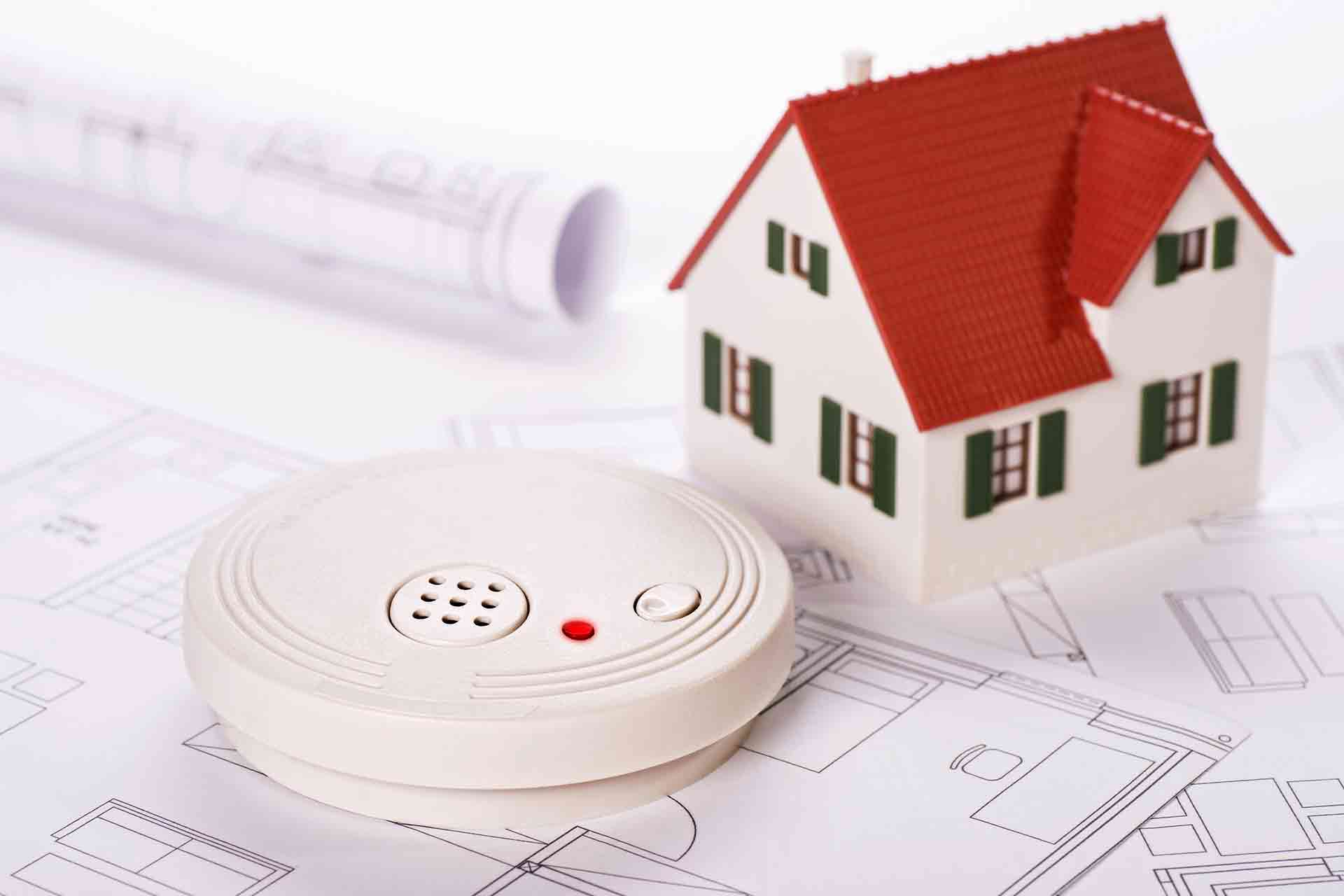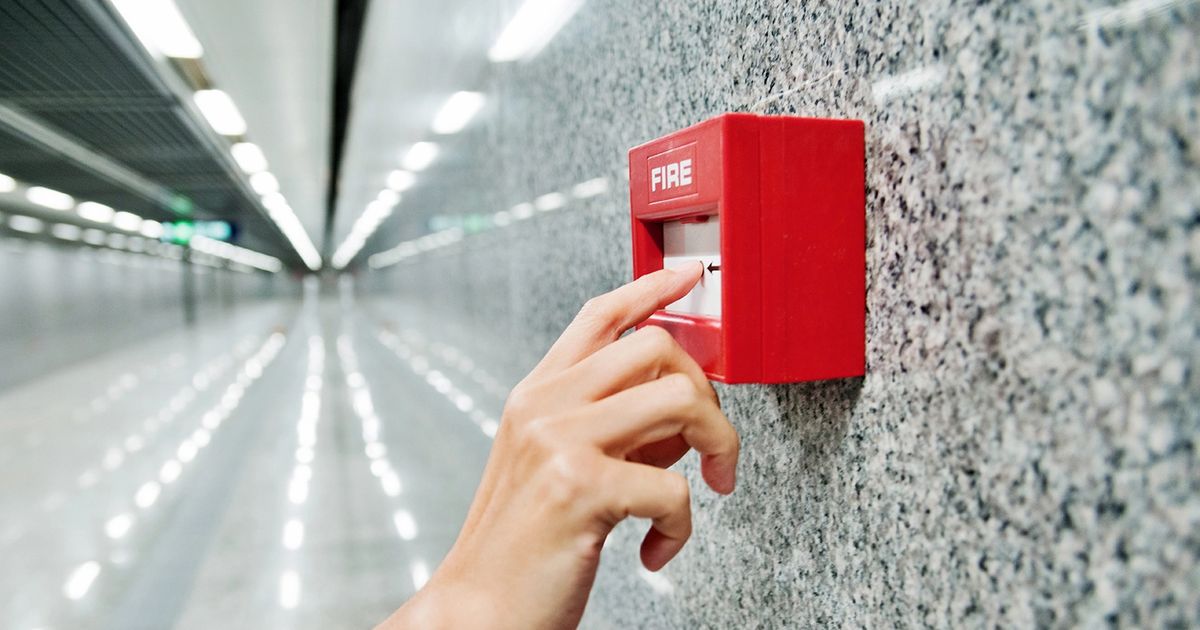We’ve all felt it — that pang of anxiety imagining any threat to our home, a sacred space where our loved ones live. According to the U.S. Fire Administration, there are more than 300,000 fires in residential buildings every year.
The quiet residential safety hero is an effective fire alarm system. Here’s the solid truth: ensuring a residential fire alarm system is both effective and reliable is not just a safety step; it’s a declaration of care and safeguarding for a place people call home.
Unfortunately, many owners of residential buildings do not prioritize a fire alarm system until it’s too late. In this post, we want to provide the information you need to guide your decision and keep people safe. Let’s get into it.
The Common Misconception About Fire Alarm Systems
You’ve purchased a residential fire alarm system for your own home or apartment complex. Good work!
But understand this: owning an alarm is just the first step towards comprehensive safety. The true efficacy of these systems comes to light when they’re carefully planned, installed, and maintained, and quality inspected to ensure they perform seamlessly if catastrophe strikes.
In smaller homes, much of this can be managed by the owner – although it’s smart to have a professional oversee the process. In large apartment complexes, it’s imperative that a professional manages every step of the planning and implementation process of the residential fire alarm system.
Beyond the Manual: The Role of Professionals in Residential Complexes
Imagine having a fortress – but it’s got a bunch of hidden, unknowable weak points.
Professional fire alarm system providers work diligently to eliminate these risks and plan for anything unexpected, ensuring every potential vulnerability is properly dealt with. Their expertise is not merely a service; it’s a safeguard against unforeseen fire hazards.
Ultimately, the manual will only get you so far. A professional will facilitate the following:
Customization: The Unseen Shield
Every residential building is unique, and by extension, the residential fire alarm system should be uniquely tailored. The professional lens identifies and anticipates variabilities, customizing systems to snugly fit a property’s exclusive layout and needs.
Considering the User’s Journey
In the pursuit of safeguarding spaces, a professional approach leans heavily into empathy.
Pros will reflect on questions that residents may have upon a sudden beep or flicker from the residential fire alarm system. Can they discern a false alarm from a real one? Simplicity is key.
A system that communicates its status, concerns, and alerts with clarity ensures swift, appropriate reactions when seconds are pivotal.
Special Needs Demand Special Attention
Most residential communities house people from all walks of life. Incorporating features like visual alarms for the hearing impaired and ensuring alarms are audible in every corner of each apartment, caters to all, reinforcing your protective embrace around each resident.
Testing and Maintenance
An unchecked system slowly morphs into an unreliable one. Regular professional check-ups, akin to health check-ups, ensure the robustness and reliability of your system, guaranteeing it’ll sound the alarm when you need it most.
The Unseen Layers of a Fire Alarm System
Wireless vs Wired
The decision between a wireless and wired residential fire alarm system isn’t merely technical; it’s about understanding your building’s anatomy. While wireless systems provide impressive flexibility and ease of installation, wired systems offer a great deal of reliability. Professional input is crucial to discern the ideal fit for your unique space.
The Unsung Hero: Power Backup
Imagine a guard that falls asleep when the power goes out — unthinkable, right? A robust power backup system isn’t optional; it’s non-negotiable. Making sure your alarm system stays vigilant during power failures ensures the uninterrupted safety of your system.
The Role of Ongoing Professional Consultation
Why Expert Involvement is Non-Negotiable
This isn’t about scare tactics, but rather, assuring you and your tenants can sleep peacefully, knowing that your safety isn’t compromised by oversight or misjudgment. An expert will unveil potential pitfalls and optimize your residential fire alarm system, creating a system guard without failing.
Beyond Installation: Long-Term Partnerships
We’re talking about a camaraderie that extends beyond the initial set-up. Aligning with professionals for ongoing maintenance, updates, and support ensures your system doesn’t just meet, but stays viable and in tune with the industry’s innovation.
Testing and Maintenance
An unchecked system slowly morphs into an unreliable one. Regular professional check-ups, akin to health check-ups, ensure the robustness and reliability of your system, guaranteeing it’ll sound the alarm when you most need it.
The Wrap
Ensuring the effectiveness of your residential fire alarm system – and its components – isn’t an isolated act, but a continual commitment. By intertwined actions of selecting, maintaining, and routinely validating your system through professional guidance, you’re not only preserving bricks and mortar – but safeguarding the irreplaceable: lives, memories, and a sense of unremitting security.
Be the unseen guardian; envelop your residential space with safety. Choosing specialized, professional vigilance isn’t just a wise choice – it’s a resolute stand for safety.
Author Bio: Brian Kozlosky, President/Founder of 2 Krew Security and Surveillance – headquartered in Kittanning, PA. With a Bachelor of Science from Slippery Rock University, I have 15+ years of experience operating a successful security and surveillance company. You can get in touch with me on LinkedIn.





